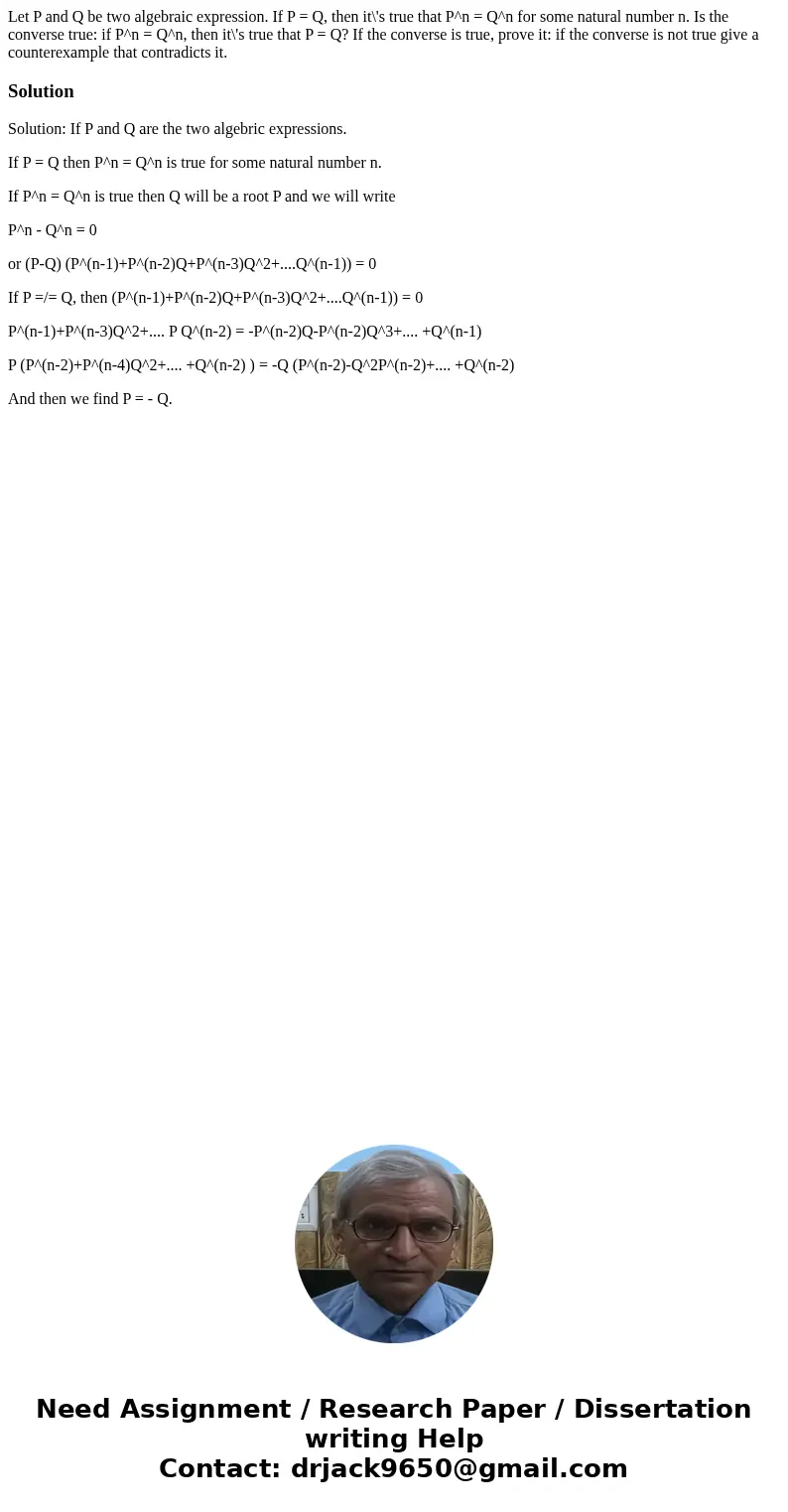Let P and Q be two algebraic expression If P Q then its tru
Let P and Q be two algebraic expression. If P = Q, then it\'s true that P^n = Q^n for some natural number n. Is the converse true: if P^n = Q^n, then it\'s true that P = Q? If the converse is true, prove it: if the converse is not true give a counterexample that contradicts it.
Solution
Solution: If P and Q are the two algebric expressions.
If P = Q then P^n = Q^n is true for some natural number n.
If P^n = Q^n is true then Q will be a root P and we will write
P^n - Q^n = 0
or (P-Q) (P^(n-1)+P^(n-2)Q+P^(n-3)Q^2+....Q^(n-1)) = 0
If P =/= Q, then (P^(n-1)+P^(n-2)Q+P^(n-3)Q^2+....Q^(n-1)) = 0
P^(n-1)+P^(n-3)Q^2+.... P Q^(n-2) = -P^(n-2)Q-P^(n-2)Q^3+.... +Q^(n-1)
P (P^(n-2)+P^(n-4)Q^2+.... +Q^(n-2) ) = -Q (P^(n-2)-Q^2P^(n-2)+.... +Q^(n-2)
And then we find P = - Q.

 Homework Sourse
Homework Sourse